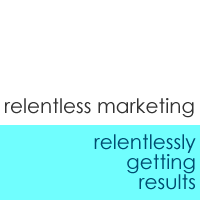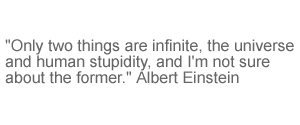







Marketing Has Little To Do With Sales
The Press Democrat, 29.11.95
By Janet Holman Parmer
ESI strategist courts consumers.
Most Americans pull out their cameras to document family gatherings like Thanksgiving at grandma's, or to capture emotion-packed milestones like a baby's first step.
And they pack along a camera for scenic vacation shots - that breathtaking moment before sunset at Yosemite's Half Dome or the glistening aquamarine waters of Lake Tahoe, set against a backdrop of snow-encrusted peaks.
But most amateur shutterbugs know that after photo processing, the resulting prints may be a mixed bag - a few out-of-focus shots, some that are truly forgettable, and if you're lucky, a handful of satisfying, nicely composed, pretty images.
With the premise that most consumers would like to improve those odds, a documentary, "Photographing America," is in the works to teach nuts and bolts techniques for snapping better photos. The show also will explain new technologies, like how to store old photos on CD-ROM discs.
In addition to the educational content, the one-hour documentary will contain gorgeous visual sequences of America that'll undoubtedly inspire views to buy a few rolls of film, load up their cameras - no matter whether it's a simple point-and-shot model or a fancy, manually operated 35 mm - and start clicking the shutter.
And who would be the logical corporate sponsor of "Photographing America," slated to air next spring on PBS stations nationwide?
None other then Fuji Photo Film USA Inc.
It makes perfect sense, says Petaluman Bill Robinson, 38, a marketing strategist for ESI, a local marketing firm that made the critical link between the documentary's producer and an underwriting sponsor.
Robinson's job was to find a logical business to pay for production costs for "Photographing America," which will be filmed by DocuVision, a Santa Barbara- based production company. DocuVision is owned by Executive Producer Bob Acosta, who has 20 years' experience making informational and educational documentaries, most of which aired on PBS.
Fuji, which agreed to pay $130,000 for the production, will have its corporate logo at the start and end of the show. It also will have further opportunity to promote itself through a direct-response marketing mechanism at the close of the documentary, when viewers will be given a toll-free phone number they can call for a free transcript. Along with that transcript will be marketing information about Fuji products, explained Robinson.
"This allows the sponsor to begin a dialogue with the consumer," he said.
With other forms of marketing or advertising, businesses often have scant ability to gauge the impact of their ads or TV sponsorship, but this method, says Robinson, gives a firm, quantifiable means of measuring the shows' impact and the effectiveness of its marketing - on viewers.
Robinson, who has matched Acosta's films with other major corporations like Marriott, Cigna and even the U.S. Postal Service, says his clients are convinced it's worthwhile to target PBS viewers, whom demographic surveys reveal are older, better educated and have higher incomes than average TV viewers.
The sponsor acquisition cycle can take two weeks to two years, with typical deals taking at least six months to a year to secure, Robinson said.
In the case of "Photographing America," Robinson first approached Eastman Kodak about sponsorship, but "like most lumbering, Goliath corporations, they had a hard time responding. They had the proposal for 1-1/2 months and they couldn't commit to it." Fuji executives, however, reviewed the 12-page show outline and have the green light after just two months.
Robinson, who also represents authors and entrepreneurs, sums up his marketing philosophy this way: "You've got to be something different in the marketplace."
"If you try to market something and your real objective is sales, you're doomed to fail. Sales is mechanical and tactical. Marketing is strategic. You lay the framework, it's not the act of closing a sale, but it's communicating with consumers about what you have to offer. It's positioning so you're as attractive as possible, and there's got to be credibility around the product," said Robinson, citing PBS documentaries as examples of credible shows.
ESI was founded last February by Winnie Rogers, a Marin County resident with an accounting background who wanted to start a marketing firm. Robinson, who is her sole employee, has a bachelor's degree in business for the University of Southern California and has worked for RCA's marketing department and Petaluma-based Gerber Business Development, handling finance and marketing tasks.
While most of his business contacts are in major metropolitan areas, Robinson finds being based in Petaluma hasn't been a disadvantage. He travels when necessary. "Face to face is very important, don't get me wrong, but I can sell a six-figure project over the phone."
Robinson spends a sizeable portion of his time marketing the husband-wife team of Paul and Sarah Edwards, who are Southern California-based authors of books about the virtues, pitfalls and logistics of operating a home-based business.
The Edwardses, who have written five books and have two more ready for release in 1996, also promote working from home on their own syndicated weekly radio show and a TV show on the Scripps-Howard cable network.
In 1983, the Edwardses established their own forum on Compuserve about working from home, and as their marketing strategist, Robinson says he "wants to position them as futurists. People who recognize a trend, It's important to position them not only as pre-eminent experts, but as advocates for people who work at home."
The Edwardses pay Robinson a monthly retainer fee, plus commission. Among his jobs are issuing press releases reinforcing the couple's position as leaders in their field, generating stories about them in national magazines, and lining up speaking engagements for them at influential business conferences.
"As a marketing strategist, you're providing a service. It's a way of thinking that's different," says Robinson.
Copyright © 1994 - 2005 Relentless Marketing